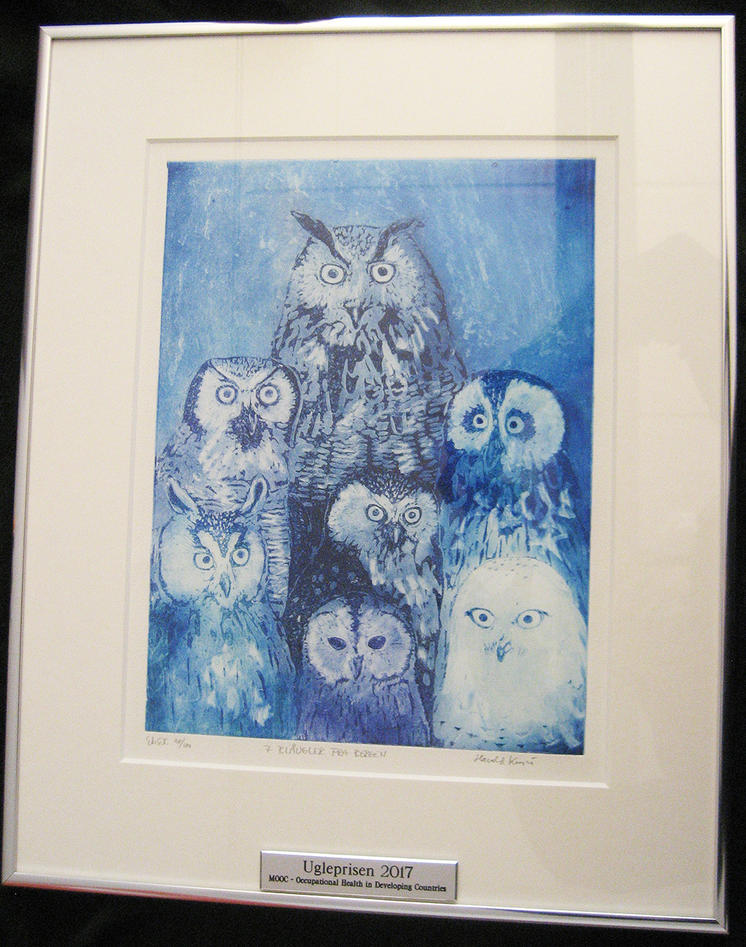Pertinent and Innovative MOOC
UiB’s highest education prize for 2017, the Owl Prize, has been awarded to the Massive Open Online Course (MOOC), “Occupational Health in Developing Countries”.
Main content
Preventable tragedies
Every 15 seconds, a worker dies from a work-related accident or disease. Two thirds of these deaths happen in developing countries. Many countries have no focus on the health and safety of their workers. Better knowledge and education can prevent many of these tragic events.
The MOOC is Professor Bente Moen’s brainchild. She is a specialist in Occupational Medicine. In her work in developing countries, Moen has become increasingly concerned about the lack of knowledge and education concerning Health and Safety routines in these countries. Many developing countries have no or poorly developed infrastructures for addressing such issues. Moen recognized an acute need for capacity building - a little more knowledge and training could have an enormous preventative impact.
Making knowledge accessible
Moen worked together with colleagues to build a basic curriculum for an online course in Occupational Medicine that would be free and open to all. It was a collaboration between researchers from the Research Group, Occupational and Environmental Medicine, and the Centre for International Health (CIH) at the University of Bergen UiB) as well as with international colleagues, staff as well as students, at Muhimbili University of Health and Allied Sciences in Tanzania and Addis Ababa University (AAU) in Ethiopia. The MOOC includes:
- the basic concepts of occupational health;
- the tasks and structure of occupational health services;
- the most important risk factors for illness and injuries at workplaces globally;
- the major occupational diseases;
- the different steps in risk assessment at the workplace;
- the association between workplace exposure and health effects;
- and the main steps in preventing exposure to health hazards in the work environment.
The course has been offered 3 times thus far, and will be offered again October 2017. More than 10 500 students from over 150 different countries have taken it. While students may work at their own speed, the course is designed to involve about 4 hours of work every week for a 6-week period, during which time the course leaders are available and participate in online discussions. In addition, some universities have developed an exam so that students can receive credit for the course and some have included the course in their study programmes (USA, Ethiopia, Tanzania, Ghana, Papua New Guinea and Norway).
Some of the funding to develop the course came from Norwegian Agency for Development Cooperation (Norad). DigUiB provided the technical services to develop the course and were the contact with FutureLearn, the course’s technological platform.
Access the course: Occupational Health in Developing Countries
The Owl Prize
The University of Bergen (UiB), awards 2 education prizes every year. One is for the top education milieu, the other for the top course, the Owl Prize. In awarding the Owl Prize, two qualities are considered in particular:
- Results achieved
- Collaboration between students and teachers, and between those involved in course development throughout the course process
In awarding this year’s prize to the Massive Open Online Course (MOOC), “Occupational Health in Developing Countries”, the committee cited the accessible and innovative nature of the course and its significant capacity-building potential. They also underlined the positive contribution the course makes to UiB’s international profile.


